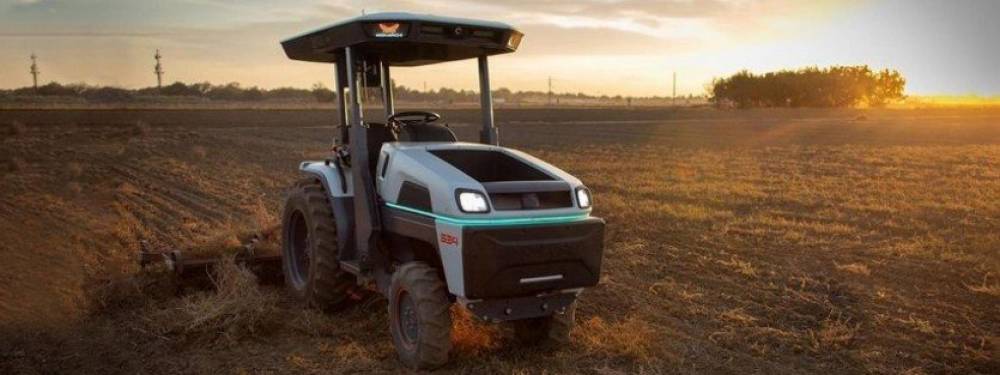
Self-driving Electric Tractors Have The Potential To Significantly Reduce Farming Environmental Impact
Self-driving electric tractors have the potential to significantly reduce farming's environmental impact
A California startup claims to be able to help farmers become more environmentally friendly and profitable by offering the world's first fully electric, self-driving tractor.
According to its makers, Monarch Tractor, the compact tractor can be programmed to perform tasks such as plowing, harvesting, and mowing and can run for more than 10 hours on a four- to five-hour charge.
Although it does not require a driver, it must have a designated remote operator who receives real-time alerts and can stop the vehicle if necessary to comply with US regulations. It is equipped with sensors that detect livestock and crops, as well as collision avoidance systems that enable it to work autonomously alongside farm workers.
'Agriculture is ready for transformation'
Praveen Penmetsa, founder and CEO of Monarch, says he understands how technology can shape an industry after nearly two decades in the mobility and energy sectors. "Watching those two industries transform provided me with a template and the idea that agriculture is ready for transformation globally," Penmetsa tells CNN Business.
Monarch claims that when one of its tractors replaces a diesel vehicle and is powered by renewable energy, it can save an average of 77 tons of carbon dioxide per year — the equivalent of taking 17 gasoline passenger cars offs the road.
Additionally, the tractors can collect data while operating, which can provide farmers with information about field and crop health, as well as long-term yields, as well as alert them to issues such as irrigation leaks or crop discoloration.
The company raised $20 million in March, and Penmetsa and his team of over 50 engineers at Monarch's headquarters in Livermore, California, are now launching a series of pilot projects on working farms in three states.
It will begin delivering its first tractors to farmers in California, Washington, and Oregon over the next two months. Monarch will collaborate with farmers to test the vehicles, and the company hopes to begin shipping production tractors later this year at a starting price of $58,000.
According to Monarch, the tractors can save farmers thousands of dollars in labor and fuel costs each year.
'Society places an enormous burden on farmers.'
According to David Rose, an associate professor of agricultural innovation at the University of Reading, farmers are increasingly under pressure to balance feeding a growing population with increased customer demand for sustainable produce, all while contending with labor shortages.
"Society expects an awful lot of farmers," he says. "I don't believe we consider the difficulties farmers faced in putting food on the table three times a day when we look at our plate."
According to him, the most transformative feature of the Monarch tractor at this point is that it is electric. "To be able to transition away from gas- and diesel-guzzling... equipment is fantastic," he says.
Other companies, including California-based Bear Flag robotics, Denmark-based Agrointelli, and John Deere, are developing driverless tractors. Monarch is the first company to sell a self-driving electric tractor.
However, many countries do not have a legal framework in place for self-driving vehicles. "Policy and regulation must fundamentally grasp this new mode of agriculture," Rose says. "Until then, I believe that the full benefits of autonomy will remain unrealized."
Penmetsa is most excited about the prospect of farmers using data to increase customer transparency. He envisions food packaging with a QR code that shoppers can scan to access information about how the produce was grown.
"We want consumers to appreciate the effort farmers make to put food on the table," he explains. "I believe that if farmers can tell that story through data, we can establish a direct link."
Courses and Certification
E-Agriculture Course and Certificate
Engineering Geology Course and Certificate

